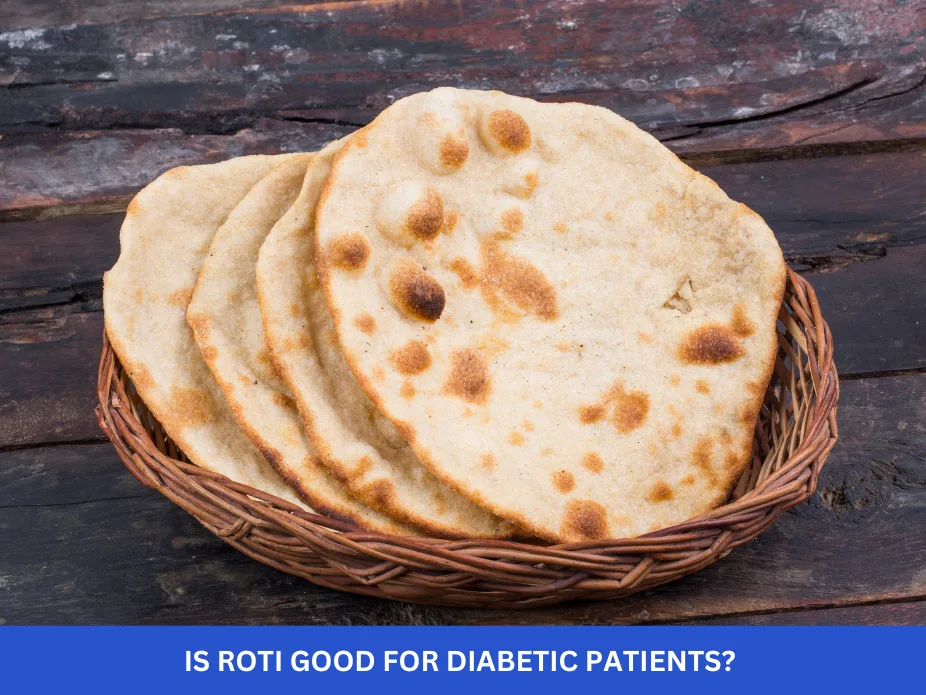When we think about the body’s regulatory systems, the endocrine system is one of the most crucial. The endocrine system comprises a set of glands responsible for producing and releasing hormones that help control various body functions, from growth and metabolism to mood regulation and reproduction. Among these, the pituitary gland holds a significant position, often being called the “master gland.” But is the pituitary gland an endocrine gland? And why is it so important in regulating the body’s hormonal balance?
In this blog post, we will explore the role of the pituitary gland as an endocrine gland, its functions, how it influences other glands, and why it’s considered the master regulator of the endocrine system. We’ll break it down into simple and easy-to-understand terms to ensure that you walk away with a solid understanding of this critical gland and its role in the human body.
What is the Endocrine System?
Before delving into the specifics of the pituitary gland, let’s briefly understand what the endocrine system is and how it works.
Definition of the Endocrine System
The endocrine system is a collection of glands that secrete hormones into the bloodstream. These hormones act as chemical messengers, traveling through the blood to various organs and tissues, regulating important functions such as:
- Metabolism (how the body uses energy)
- Growth and development (physical and sexual maturation)
- Reproductive processes (fertility, menstrual cycle)
- Mood and emotions (mental health)
- Sleep-wake cycles (circadian rhythms)
The endocrine system helps maintain homeostasis, ensuring that all body systems function in harmony. Major glands in this system include the pituitary, thyroid, adrenal glands, pancreas, gonads (ovaries and testes), and others.
What is the Pituitary Gland?
The pituitary gland is a small, pea-sized gland located at the base of the brain, just below the hypothalamus. Although it is small in size, the pituitary gland plays a massive role in controlling the endocrine system and regulating many vital body functions. The pituitary is often referred to as the “master gland” because it controls several other endocrine glands, such as the thyroid, adrenal glands, and reproductive glands.
Structure of the Pituitary Gland
The pituitary gland has two major parts:
- Anterior Pituitary (front part)
- Posterior Pituitary (back part)
Each part has its own functions and secretes different hormones that regulate a variety of bodily functions.
- Anterior Pituitary: It produces and secretes several hormones that control other endocrine glands, including the thyroid, adrenal glands, and gonads.
- Posterior Pituitary: It does not produce hormones but stores and releases hormones produced by the hypothalamus, such as oxytocin and antidiuretic hormone (ADH).
Is the Pituitary Gland an Endocrine Gland?
Yes, the pituitary gland is indeed an endocrine gland. It produces and releases hormones directly into the bloodstream, which travel to various target organs and tissues to regulate essential functions in the body. The pituitary is considered a central player in the endocrine system because of its ability to control the activity of other endocrine glands.
Why is the Pituitary Gland Called the “Master Gland”?
The pituitary gland is often referred to as the master gland of the endocrine system because it produces several hormones that control the functions of other endocrine glands. For example:
- It produces thyroid-stimulating hormone (TSH), which stimulates the thyroid gland to produce thyroid hormones that regulate metabolism.
- It secretes adrenocorticotropic hormone (ACTH), which stimulates the adrenal glands to produce cortisol, a hormone that helps the body respond to stress and regulate metabolism.
- It releases follicle-stimulating hormone (FSH) and luteinizing hormone (LH), which control the production of sex hormones and regulate the reproductive system.
Through these hormones, the pituitary controls various processes in the body, including growth, metabolism, stress response, and reproduction, making it the central regulator of the body’s hormonal balance.
Functions of the Pituitary Gland
The pituitary gland is responsible for regulating several critical bodily functions through the hormones it secretes. These functions are controlled through both direct hormone production and by stimulating other glands to produce their hormones. Let’s break down the key hormones secreted by the pituitary gland and their functions.
1. Growth Hormone (GH)
Growth hormone (GH), produced by the anterior pituitary, plays a crucial role in stimulating growth, particularly in bones and muscles. It is essential for physical growth in children and adolescents but also helps regulate metabolism in adults. GH helps maintain healthy body composition by promoting the breakdown of fat and supporting muscle development.
2. Thyroid-Stimulating Hormone (TSH)
TSH, also secreted by the anterior pituitary, stimulates the thyroid gland to produce thyroxine (T3) and triiodothyronine (T4). These thyroid hormones regulate metabolism, control energy use, and influence growth and development. Without the regulation of TSH from the pituitary, the thyroid cannot function properly.
3. Adrenocorticotropic Hormone (ACTH)
ACTH stimulates the adrenal glands (located on top of the kidneys) to produce cortisol, a hormone that helps the body respond to stress. Cortisol also regulates metabolism, immune responses, and the body’s blood pressure. The secretion of ACTH from the pituitary is crucial for maintaining the body’s ability to handle stress.
4. Prolactin
Prolactin is another hormone produced by the anterior pituitary. It plays a key role in lactation (milk production) in females, especially after childbirth. Prolactin is responsible for stimulating the mammary glands to produce milk, making it essential for breastfeeding.
5. Follicle-Stimulating Hormone (FSH) and Luteinizing Hormone (LH)
These two hormones are critical in regulating the reproductive system. In females, FSH stimulates the growth of eggs in the ovaries, while LH triggers ovulation (release of an egg from the ovary). In males, FSH and LH stimulate the testes to produce sperm and testosterone, respectively.
6. Antidiuretic Hormone (ADH)
Produced in the hypothalamus and stored in the posterior pituitary, ADH helps regulate water balance in the body by controlling how much water the kidneys reabsorb. It reduces urine production, helping the body conserve water and maintain proper hydration levels.
7. Oxytocin
Also produced by the hypothalamus and released from the posterior pituitary, oxytocin is often called the “love hormone” because of its role in promoting bonding and emotional connection. It stimulates uterine contractions during labor and helps with milk ejection during breastfeeding. Oxytocin also plays a role in promoting feelings of trust and affection between individuals.
How Does the Pituitary Gland Affect Other Glands?
The pituitary gland affects several other glands in the endocrine system, either directly or indirectly, by secreting hormones that regulate their activity. Here’s how the pituitary works with other glands:
1. Pituitary and Thyroid Gland
The pituitary gland releases TSH, which stimulates the thyroid gland to produce thyroid hormones (T3 and T4). These hormones regulate the body’s metabolism, energy production, and growth. Without TSH from the pituitary, the thyroid would not produce enough hormones to maintain metabolic balance.
2. Pituitary and Adrenal Glands
Through ACTH, the pituitary stimulates the adrenal glands to produce cortisol, which helps the body respond to stress and regulates metabolism. Adrenaline, produced in response to stress, also plays a part in the “fight-or-flight” response.
3. Pituitary and Ovaries/Testes
The pituitary secretes FSH and LH, which regulate the function of the ovaries in females and testes in males. These hormones control the production of sex hormones (estrogen, progesterone, testosterone) and the production of eggs (in females) and sperm (in males).
What Happens If the Pituitary Gland Malfunctions?
A malfunction in the pituitary gland can cause a variety of disorders, given its central role in regulating other glands and bodily functions. Some of the common disorders related to the pituitary gland include:
1. Pituitary Tumors
Tumors in the pituitary gland can affect hormone production. Depending on the type of tumor, it can cause the overproduction or underproduction of certain hormones, leading to conditions like Cushing’s disease (excess cortisol), acromegaly (excess growth hormone), or hypopituitarism (insufficient hormone production).
2. Hypopituitarism
In this condition, the pituitary fails to produce enough of one or more hormones. It can result in symptoms like fatigue, weight gain or loss, decreased libido, and infertility. Treatment often involves hormone replacement therapy.
3. Diabetes Insipidus
This disorder occurs when there is insufficient production of ADH, leading to excessive urination and thirst. It is treated by administering synthetic ADH to help regulate water balance.
4. Hyperpituitarism
When the pituitary gland overproduces hormones, it can lead to conditions such as gigantism or acromegaly (overproduction of growth hormone) and Cushing’s syndrome (overproduction of cortisol).
Real-Life Scenario
Consider a teenager going through a growth spurt. The pituitary gland releases growth hormone, which signals bones and muscles to grow. If the gland doesn’t function properly, it can lead to conditions like dwarfism (underproduction) or gigantism (overproduction). This shows how critical the pituitary gland is in regulating normal growth and development.
Expert Contribution
Endocrinologists emphasize that the pituitary gland’s hormones affect nearly every organ system. For example, TSH regulates thyroid hormone production, which impacts metabolism and energy levels. Dysfunction in the pituitary, such as tumors or hormone imbalances, can cause serious health problems, highlighting the importance of regular medical checkups and early diagnosis.
Recommendations Grounded in Proven Research and Facts
- Monitor hormone levels: Regular testing can detect pituitary disorders early.
- Seek medical advice for symptoms: Unexplained fatigue, growth abnormalities, or changes in metabolism may indicate pituitary issues.
- Balanced lifestyle: Adequate sleep, nutrition, and stress management support optimal endocrine function.
- Specialist consultation: Endocrinologists can provide targeted treatments for hormone imbalances, including medication or surgery for pituitary tumors.
- Awareness and education: Understanding the pituitary gland’s role helps in early recognition of endocrine disorders and ensures better health outcomes.
Frequently Asked Questions (FAQs) on Is the Pituitary Gland an Endocrine Gland?
1. Is the pituitary gland an endocrine gland?
Yes, the pituitary gland is an endocrine gland. It produces and releases hormones that regulate various bodily functions and control other endocrine glands.
2. Why is the pituitary gland called the master gland?
The pituitary gland is called the “master gland” because it regulates other endocrine glands by producing hormones like TSH, ACTH, and FSH, which control the function of the thyroid, adrenal glands, and gonads.
3. What are the main hormones produced by the pituitary gland?
The pituitary gland produces hormones such as growth hormone (GH), thyroid-stimulating hormone (TSH), adrenocorticotropic hormone (ACTH), prolactin, FSH, LH, oxytocin, and ADH.
4. How does the pituitary gland affect the thyroid?
The pituitary produces TSH, which stimulates the thyroid gland to produce thyroid hormones (T3 and T4), essential for regulating metabolism and energy use in the body.
5. What happens if the pituitary gland malfunctions?
If the pituitary gland malfunctions, it can lead to conditions like pituitary tumors, hypopituitarism, diabetes insipidus, or hyperpituitarism, resulting in symptoms like hormonal imbalances, fatigue, and growth abnormalities.
6. How is pituitary gland dysfunction treated?
Treatment for pituitary dysfunction may involve hormone replacement therapy, medications, surgery (for tumors), or radiation therapy to restore normal hormone levels.
Conclusion
The pituitary gland is undeniably a crucial endocrine gland in the body, often called the “master gland” due to its ability to regulate other endocrine glands and maintain homeostasis. By producing and secreting key hormones like GH, TSH, ACTH, and FSH, the pituitary plays an essential role in regulating growth, metabolism, reproduction, and stress responses.
If you suspect any issues related to the pituitary gland, it’s important to consult a healthcare professional for diagnosis and treatment. With proper care, most pituitary-related disorders can be managed effectively, helping to maintain optimal health and balance.



